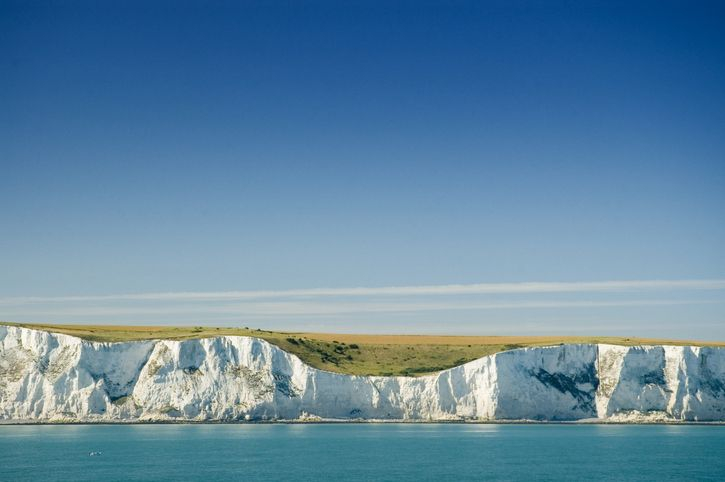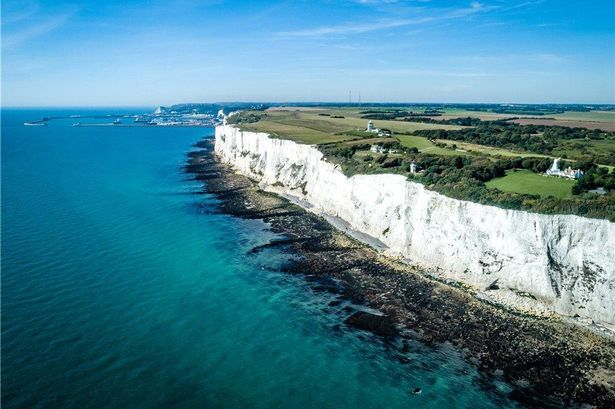The White Cliffs of Dover

The renowned White Cliffs, which run north and south of the harbor town of Dover, have served as the starting point of home for the English for a thousand years. The White Cliffs, a solid wall of sparkling white that stretches to both horizons, border the port city of Dover with vertical precipices over 300 feet high. The canyon into which Dover is crammed is the sole feature that breaks up the massive mass of milk-colored granite that rises straight out of the water in this breathtaking scene. Instead of the shoddy reality of an actual cliff, they resemble a school child's drawing of a cliff. The White Cliffs of Dover are not only stunning, but also immensely significant to the English. Dover, a small city on the island of Britain, is the closest port to continental Europe; it is just 25 miles from Dover to the French port of Calais across the English Channel.
The cliffs extend mostly westward from Dover, their brilliant white walls reflecting the whole southern light. The extremely tall cliffs start right now! With a height of almost 500 feet, the views from the edge are the most stunning throughout the entire length of the White Cliffs. The drop is entirely vertical and has a sizable overhang in numerous locations. Unsafe and unfenced, the edge should only be approached with extreme caution. Seagulls soar above the lake, so very far below. Five miles west of Dover, these enormous, vertical cliffs come to an end, and the White Cliffs begin their last stage. Approximately a quarter of a mile inland, the top 100 yards of the cliffs have receded, leaving a shaky platform teetering above the water. The final 50 feet of cliff, which is below the platform, is shielded by substantial sea barriers. The only location where a walker can proceed safely and directly down the cliff face from top to bottom is at this location. The southernmost point of the White Cliffs is a hill covered with short-cropped grass and capped by a Martello Tower, a tall cylinder with high walls on which cannons were put to fend off any invaders trying to land. The Cliffs of Dover are incredibly breathtaking.











